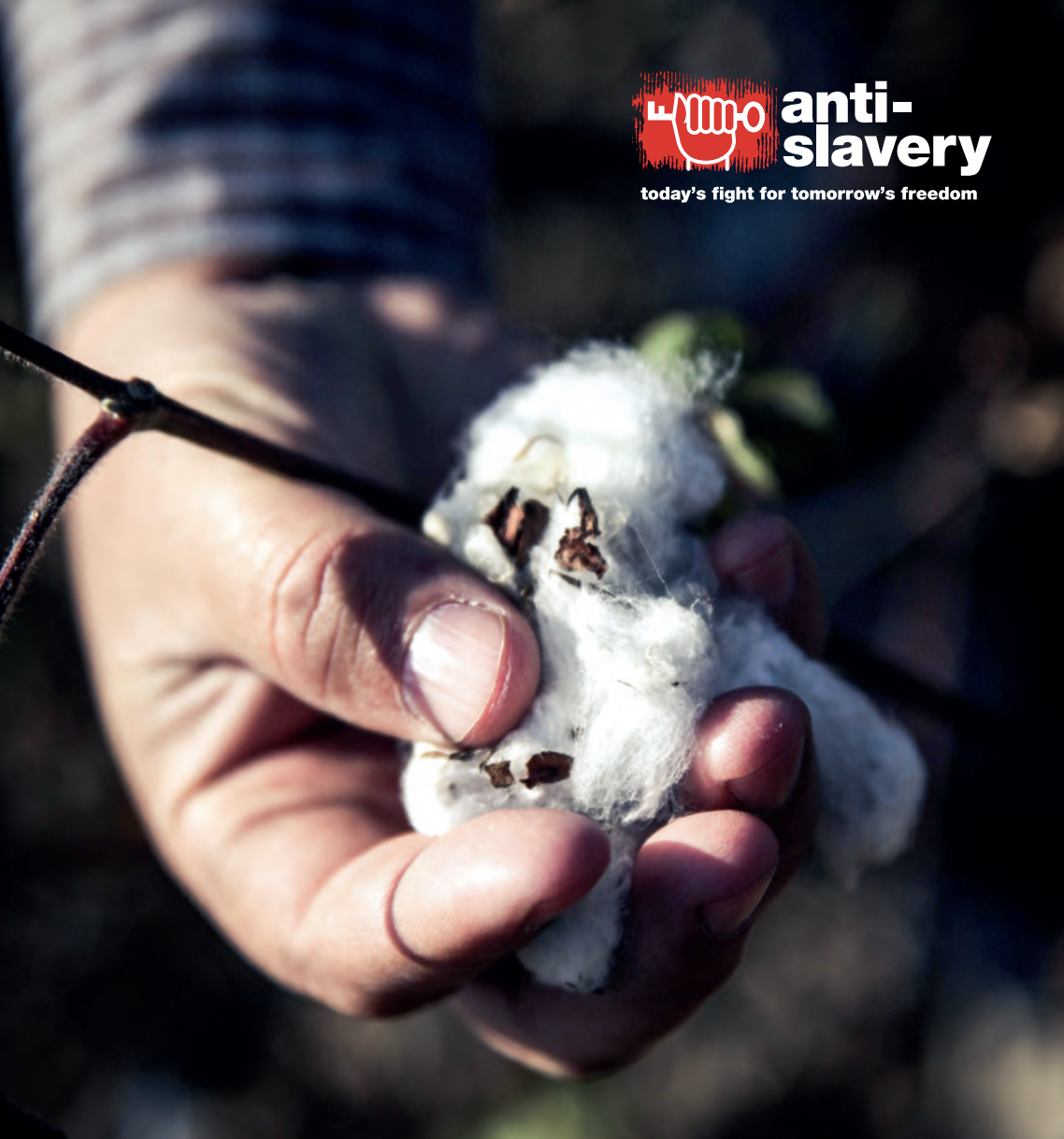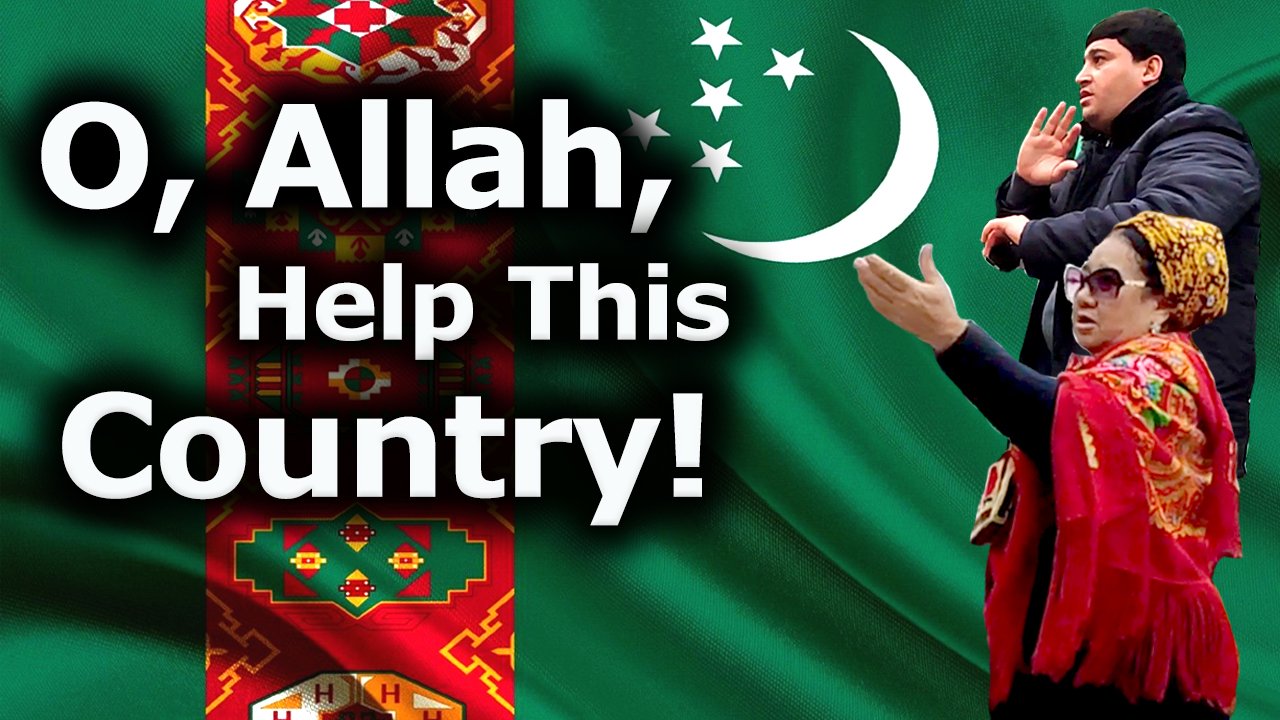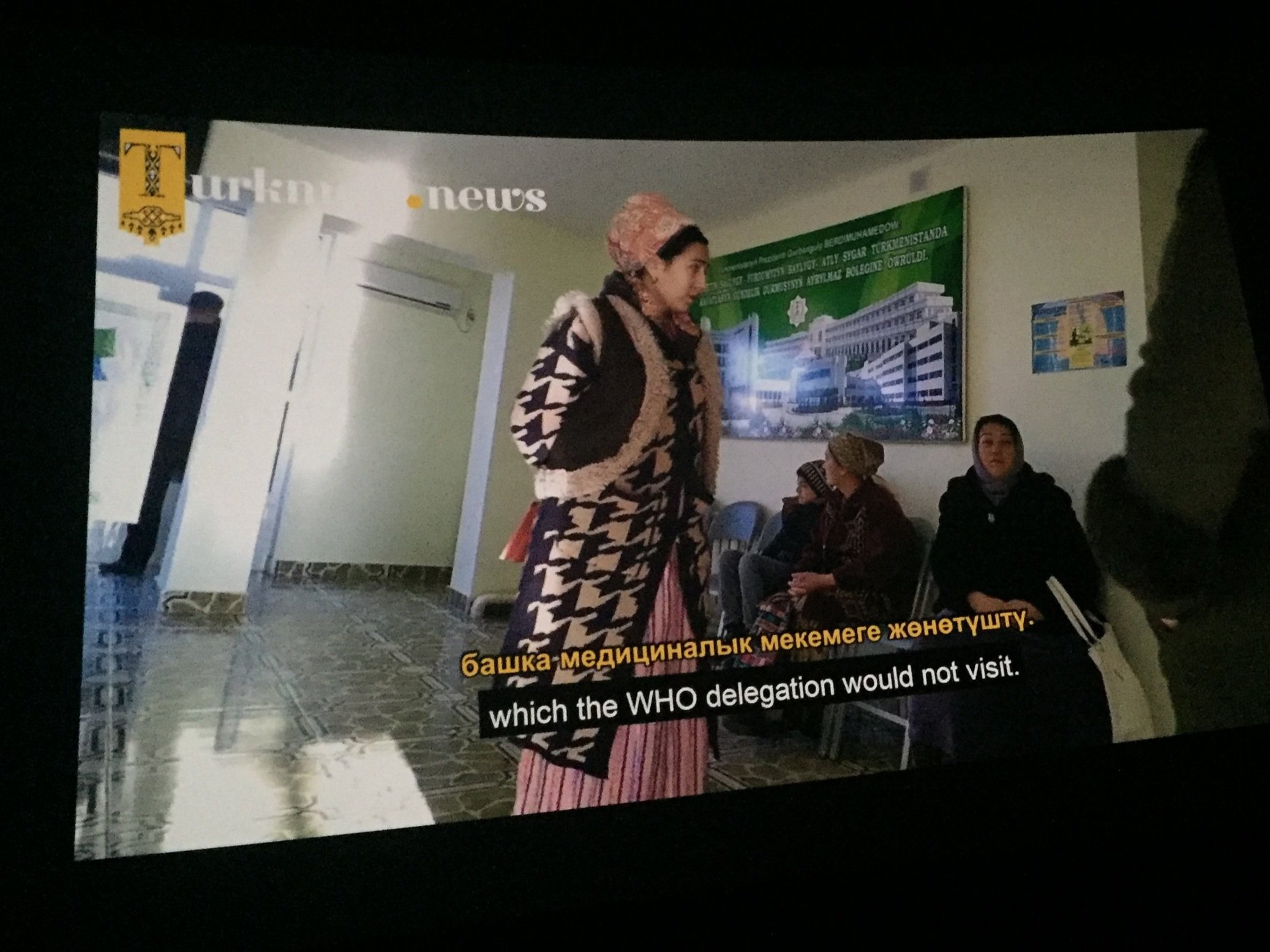Cotton Campaign: Leading the Fight Against State-Imposed Forced Labor in the Cotton Fields of Turkmenistan
The Cotton Campaign is a coalition of international human and labour rights NGOs, independent trade unions, brand and retail associations, responsible investor organisations, supply chain transparency groups, and academic partners, united to pressure the Government of Turkmenistan to end state-imposed forced and child labour in its cotton sector.
We work to:
Raise awareness of the Government-orchestrated forced labor system in Turkmen cotton production; and
Empower international and Turkmen civil society to address the systemic labor rights abuses in cotton production.
Every year during the harvest, the Government forces tens of thousands of public sector workers to pick cotton in hazardous and unsanitary conditions, and extorts money from public employees to pay harvest expenses.
The Cotton Campaign has repeatedly sought to engage with Turkmen authorities, but the Turkmen Government shut the door to dialogue and continues to deny the forced labor problem. For this reason, our advocacy and outreach actions are primarily directed at the international community to use their influence and leverage to end forced labor in Turkmen cotton production.
The Turkmen Government is resisting reforms to the industry and has taken harsh actions against those who report on abuses in the sector. Nonetheless, there are some small openings that indicate the Government is sensitive to international, public pressure.
High school students pick cotton along with their teachers during the 2020 cotton harvest in Turkmenistan. The picture has been edited to protect the monitors and workers who expose forced labor from retaliation.
“In Turkmenistan, there are no independent institutions or mechanisms to protect workers against reprisal for refusing to pick cotton. Anyone who attempts to speak out faces harassment, physical attacks, and arbitrary imprisonment”
September 2017: At the OSCE Human Dimension Implementation Meeting, the Director of Turkmen News exposes abuses by the Turkmen Government against Turkmen civil society activists.
May 2018: As a result of a submission submitted by the Cotton Campaign two years earlier, the U.S. Customs and Border Protection (CBP) issues a Withhold Release Order (WRO) against cotton originating in Turkmenistan.
October 2018 (1/2): Cotton Campaign protest at United Nations in New York, calling on the Turkmen Government to end forced labor and release activist Gaspar Matalaev.
October 2018 (2/2) 84,000 call on the Turkmen Government to immediately release of Gaspar Matalaev, who was arrested for monitoring and reporting on the systematic use of forced adult and child labor in Turkmenistan.
October 2018: Adidas, H&M, and Gap are among the first 12 brands and retailers to sign the Turkmen Cotton Pledge and commit to not source cotton from Turkmenistan until forced labor in its cotton sector has been eliminated. By 2021, the Pledge was signed by 140 brands and retailers.
March 2019: Cotton Campaign partner Anti-Slavery International launches key report about the risk of Turkmen forced labor cotton in global supply chains.
May 2020: Cotton Campaign members Turkmen News, Anti-Slavery International and Responsible Sourcing Network present on the forced labor situation in the 2019 cotton harvest in Turkmenistan and the risks of Turkmen cotton in brands' supply chains.
June 2020: For over a decade, as a result of the Cotton Campaign's advocacy, the U.S. State Department’s Trafficking in Persons (TIP) annual report has maintained Turkmenistan at Tier 3, the lowest ranking.
What We Do
1. Monitor the annual cotton harvest and build capacity among human rights activists in the country
Our Turkmen NGO partners, Turkmen News and Turkmen Initiative for Human Right (TIHR) work with a group of brave Turkmen human rights activists, who provide first-hand reports of the forced labor conditions in the cotton fields.
These activists run great risks for arrest and torture for doing this work. It is therefore crucial that the information they collect is stored and provided in a secure manner to ensure the safety of both the activists and the cotton pickers testifying to the conditions in the fields.
To this end, Turkmen News and TIHR train the independent monitors on how to identify forced labor, gather information and ensure a safe channel for communication.
In addition to monitoring and reporting on the forced labor conditions in the harvesting of cotton, our Turkmen partners conduct research into the structure and amounts of payments to farmers for mandated crops and deductions for inputs and other costs. Their findings prove that cotton production in Turkmenistan is under full control by the State and the Government forces farmers to meet official production quotas, under threat of penalty.
2. Push for reform by increasing the economic pressure on the Government of Turkmenistan
Through complex and opaque global supply chains, products containing cotton originating in Turkmenistan and produced with forced labor enter the global markets.
We are working to trace Turkmen cotton and advocate with global brands and retailers, policy makers, and government authorities to eliminate it from global supply chains.
By limiting access of Turkmen cotton goods to international markets, we seek to increase the pressure on the Turkmen Government to reform its forced labor system.
To do this, we pursue three inter-linked strategies.
First, together with our partner Responsible Sourcing Network, we are hosting the Turkmen Cotton Pledge for brands and retailers. By signing the Pledge, 140 brand and retailers have so far publicly committed to not use Turkmen cotton in their products so long as it is produced with state-orchestrated forced labor.
Second, we advocate for the introduction of robust, mandatory human rights due diligence (mHRDD) and corporate accountability legislation across jurisdictions to require companies to map and publicly disclose subsidiaries, suppliers, sub-suppliers and
business partners across their value chains.
Supply chain mapping is a prerequisite step for companies to identify the risk of Turkmen cotton in their value chains - for example, to identify the sourcing practices of sub-suppliers. Advocacy and outreach efforts are led at the EU level by our partner Anti-Slavery International, while GLJ-ILRF is driving the process in the U.S.
Finally, we engage with customs authorities to encourage stronger enforcement of existing forced labor import bans in the U.S. and Canada, and we advocate for the introduction of import control measures against forced labor products, including Turkmen cotton products, in the EU and other jurisdictions.
Complementarity between forced labor bans and accountability and enforcement actions under mHRDD to address forced labor in the cotton supply chain is essential to i) end corporate complicity in the abuses in Turkmenistan, and ii) pressure the Turkmen Government to end these practices.
In 2016, the Cotton Campaign and its partners submitted a petition under section 307 of the Tariff Act to exclude all cotton products made in Turkmenistan from the U.S. due to the state-imposed forced labor system in cotton production. The U.S. Customs and Border Protection (CBP) subsequently issued a WRO against Turkmen cotton in May 2018,
“Shutting down the global market for forced labor Turkmen cotton is essential to pushing the Government to end total state control of the cotton production system, which relies on the exploitation of farmers and forced labor of Turkmen citizens.”
— Farid Tukhbatullin, Chairperson of Turkmen Initiative for Human Rights, a member of the Cotton Campaign
which was the first such country or region-wide WRO to exclude an entire commodity.
Our partner Human Trafficking Legal Center plays a key role in tracing shipping data to identify and track products made with Turkmen cotton entering the U.S. and Canada.
We use findings from supply chain research to alert authorities about forced labor Turkmen cotton goods reaching domestic markets, and we request that companies using Turkmen cotton in their products take immediate action to exclude Turkmen cotton from their supply chains.
In the EU, our partner ASI is driving our Campaign’s engagement with the European Commission and Members of the European Parliament.
We are calling for the introduction of import control measures against Turkmen cotton [link] that would align efforts between the EU, the U.S. and Canada, where legislation banning products made with forced labor is already effective.
3. Advocate with governments, international institutions, and investors to use their influence to increase the political pressure on the Turkmen Government
We use joint Turkmen.News - TIHR reports of forced labor in the production of Turkmen cotton to inform the ranking of Turkmenistan in the U.S. State Department’s Trafficking in Persons (TIP) annual report. For over a decade, the TIP report has maintained Turkmenistan at Tier 3, the lowest ranking.
In addition to driving our advocacy at the EU level, our partners ASI and Turkmen News are also engaging with the UK Government. The aim is to ensure that following Brexit, the UK continues to align its forced labor policies with the EU to create a level playing field among all brands, retailers, and suppliers operating globally.
Further, the Cotton Campaign and our partners are advocating with UN Agencies and UN Special Procedures to urge Turkmenistan to end forced labor. In 2021, GLJ-ILRF, Turkmen News and TIHR all provided substantive input into the Special Rapporteur Modern Day Slavery’s submission to the Turkmen Government. As a result, the Special Rapporteur made a communication to the Government on August 30 2021.
The communication expresses the UN’s deep concern about the forced labor situation and the working and living conditions of cotton workers in Turkmenistan. It urges the Turkmen Government to respond to the allegations of human rights violations mentioned in the letter.
Finally, the Cotton Campaign advocates with investors to use the leverage they have over companies to catalyze company action and address any current or potential links to forced labor Turkmen cotton.
4. Raise awareness about the Turkmen Government’s abusive practices against human rights activists
Turkmenistan tolerates almost no freedom of expression or criticism.
Independent scrutiny of labor practices in the country is severely suppressed by the Government. The information that is available about the forced labor system exists only due to the courage of human rights activists, such as the cotton harvest monitors working with Turkmen News and TIHR, who run the risk of arrest and torture for doing this work.
A prominent example is the case of Gaspar Matalaev, who in 2016 was tortured and sentenced to three years’ imprisonment for reporting on abuses in the cotton sector.
Despite calls for his immediate release by the UN Working Group on Arbitrary Detention and the Cotton Campaign and its
partners, the Government of Turkmenistan refused to release him and Gaspar served the full three years’ sentence.
The Government continues to crack down on activists, bloggers and other perceived government critics. The situation has intensified in the context of the Covid-19 pandemic, as Turkmenistan denies the existence of COVID-19 in the country
Covid-19 in Turkmenistan
In December 2020, Turkmen News launched a documentary film about the Covid-19 Pandemic in Turkmenistan.
The Turkmen Government continues to deny the existence of COVID-19 in the country and has punished those who attempt to expose the real situation of the pandemic.
Few if any measures to contain the virus were observed during the 2020 and 2021 cotton harvests, as workers were forced to travel to the fields in overcrowded buses and were not provided with masks. As the Government tightened travel restrictions, preventing travel between regions and districts, it became increasingly difficult for independent monitors working with Turkmen News and TIHR to conduct field trips to document labor conditions in the harvest.














